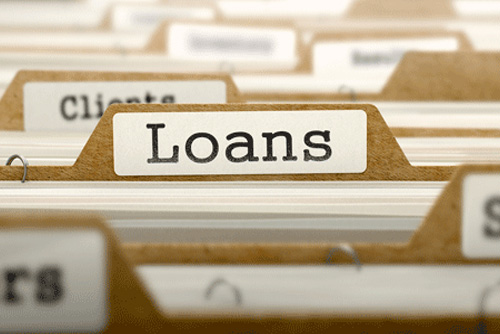What to consider when taking out a loan
Did you know that only 23% of South Africans don’t have any money left at the end of the month? And with the falling Rand, rising petrol prices, sky-rocketing food costs, increased fees for education and medical aids and so on, can you really blame the other 77% of people for being flat broke come month end?
Regardless of your financial situation, life has a way of giving you lemons and, if something unforeseen does pop up that you simply have to take care of, the team at MoneyShop would like you to be educated around what is important to consider when taking out a loan.
First things first – determine what type of loan you require
Investopedia defines a loan as:
“The act of giving money, property or other material goods to another party in exchange for future repayment of the principal amount along with interest or other finance charges. A loan may be for a specific, one-time amount or can be available as open-ended credit up to a specified ceiling amount.”
So, simply put, a loan is money you borrow that you will need to pay back and because it comes with interest, you pay back more than you originally borrowed. (Find out more about what loans are and how they work in our blog about understanding the world of loans).
There are plenty of different types of loans for you to choose from too, depending on what your unique situation and requirements are. These include:
- Personal loans – offered by a variety of financial services providers, the loan provider generally does not restrict how you may use the funds of the loan. If you are interested in taking out a personal loan, it’ll be wise to read these handy tips.
- Credit card loans – every time you pay with your credit card you are essentially taking out a loan (unless of course you have been feeding funds into that account in advance). Funds obtained via credit card are generally particularly attractive as they are relatively simple to obtain and accepted by most merchants.
- Payday loans – designed to bridge the gap from one payday to another, this type of loan is a short-term high-interest loan.
- Student loans – these types of loans are offered to students and their families to help pay for education.
- Mortgages – it is often an inescapable reality that you have to take out a mortgage (or home loan) to pay for some or all of your home.
- Vehicle financing – since, like with property, most of us can’t afford to buy a vehicle cash, financing your vehicle and then paying if off is generally the preferred approach.
- Home equity loans – homeowners can borrow from their bank against the equity that they have built up in their house. People often turn to these loans when they want to make improvements to their house.
Taking out a loan is a big deal as it binds you to making a set repayment for a certain period of time and involves paying interest on the money that you borrowed as well. While it is often necessary for you to take a loan, such as when you want to put your child through university or buy yourself that new car, it is critical that you consider your options and understand what you are committing to so that you do not find yourself in a pickle later in life.
Ask yourself the following questions before taking out a loan:
- Do I really need to buy this now? Wouldn’t it be better to save up until I have more money to contribute?
- This is quite a big purchase, is my job secure enough that I will be able to afford making the monthly repayments?
- Is there another alternative to taking out a loan that I have not explored yet?
What to consider when taking out a loan:
- What type of loan do I need?
- What monthly repayments can I afford?
- How long do I have to pay back the loan?
- How much interest will I be paying on the loan?
- If I pay it off sooner, how much will I save?
- What happens if I can’t make the monthly repayment?
- Which will work better for me – a fixed rate loan or an adjustable rate loan?
- Do I understand all the fees associated with the loan?
- Am I getting a reasonable interest rate and the best loan terms that I can find?
So with at least a week to payday, if you still think you need that loan, find out how you can get a loan with MoneyShop today.
MoneyShop





